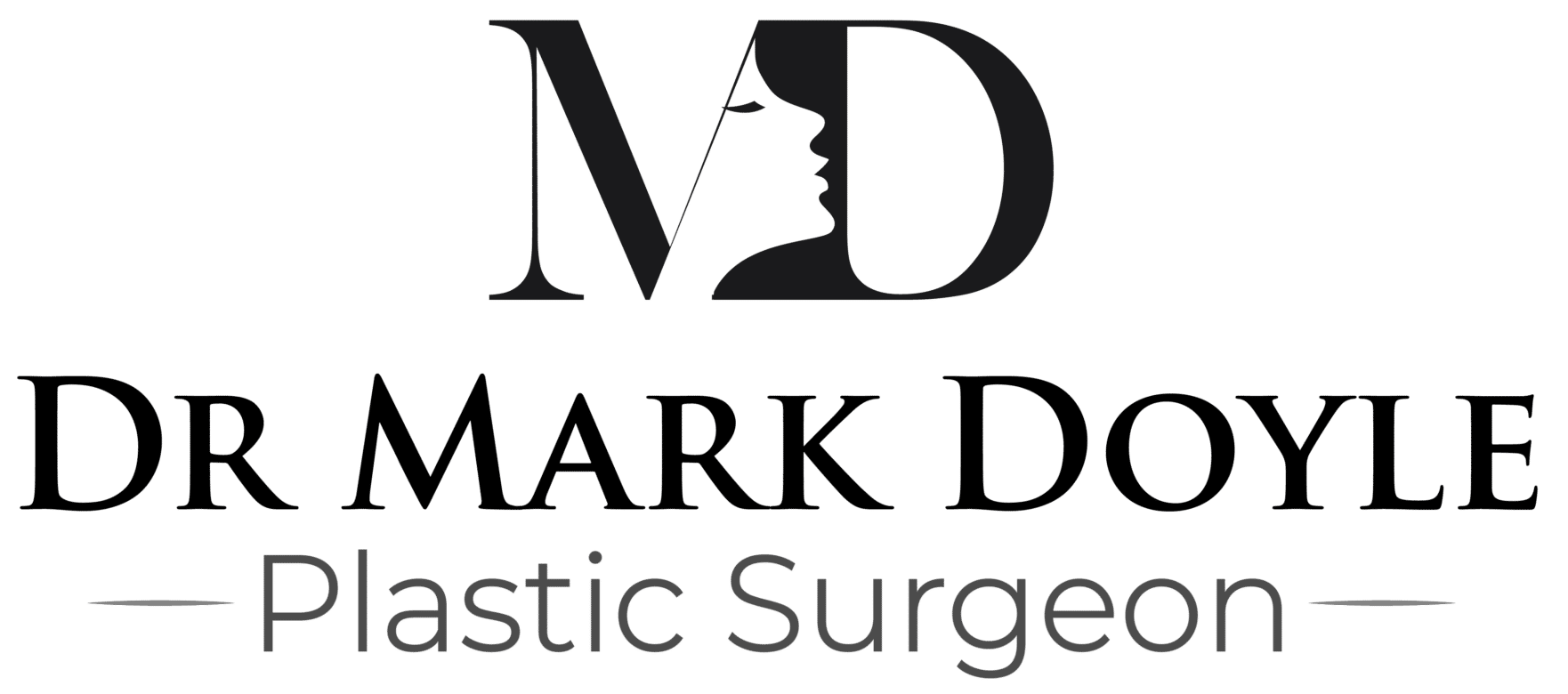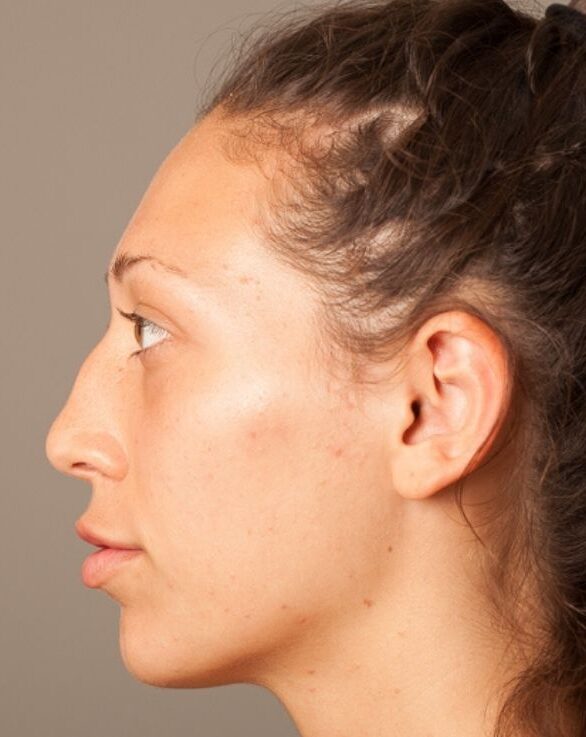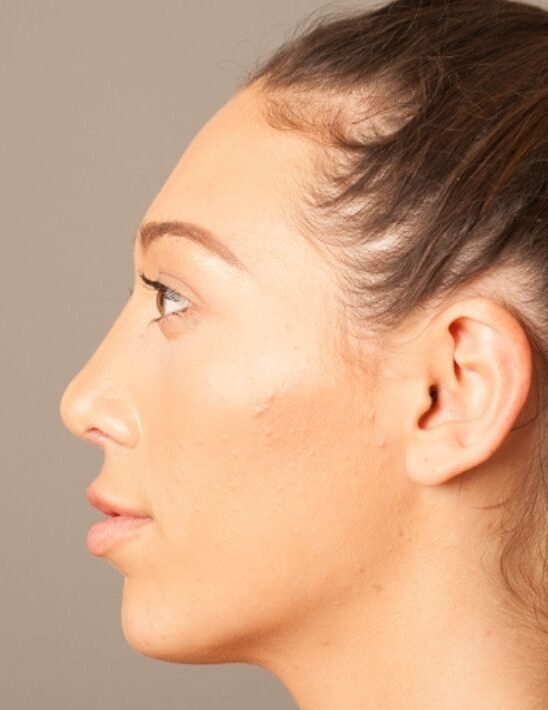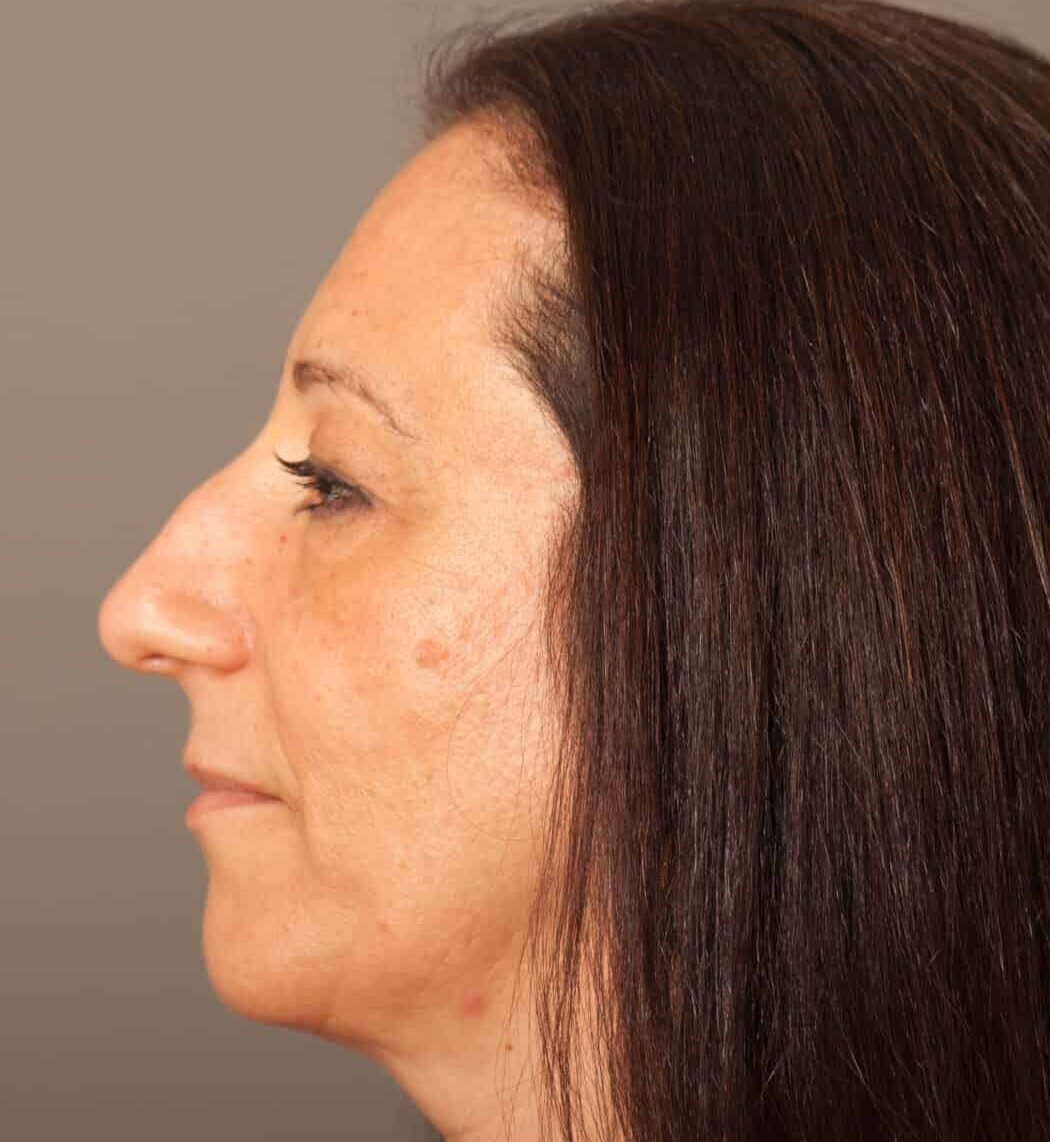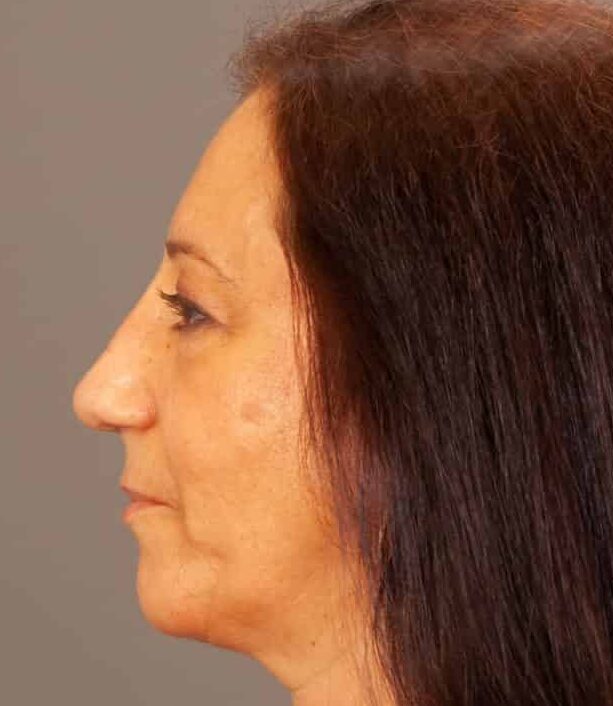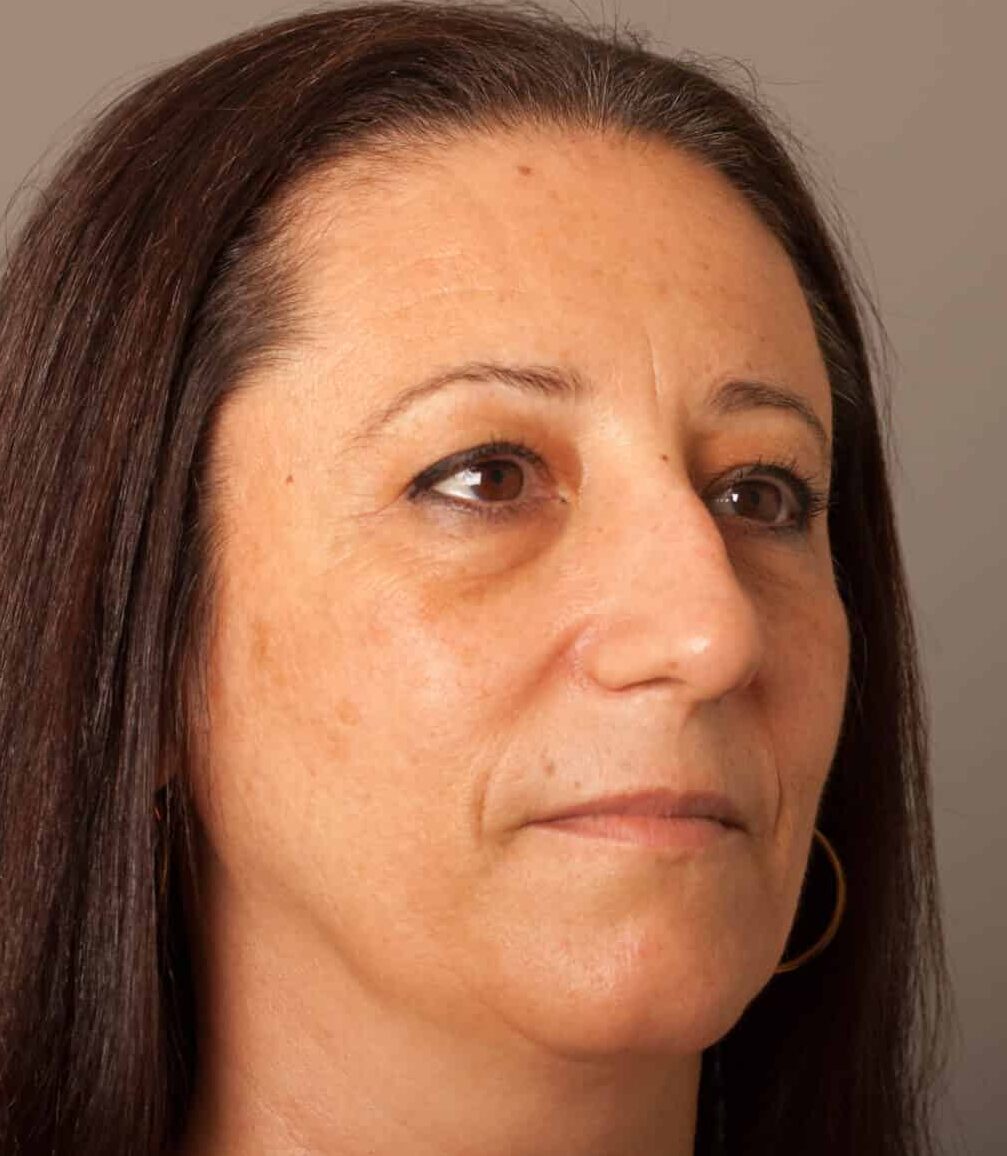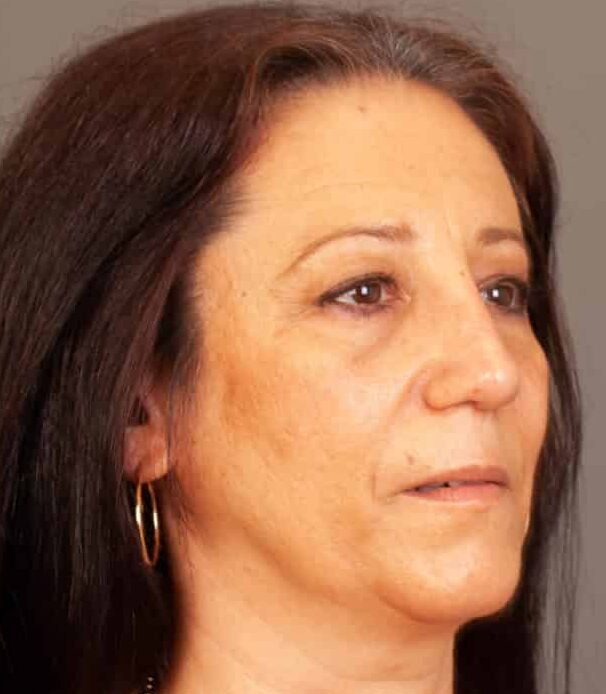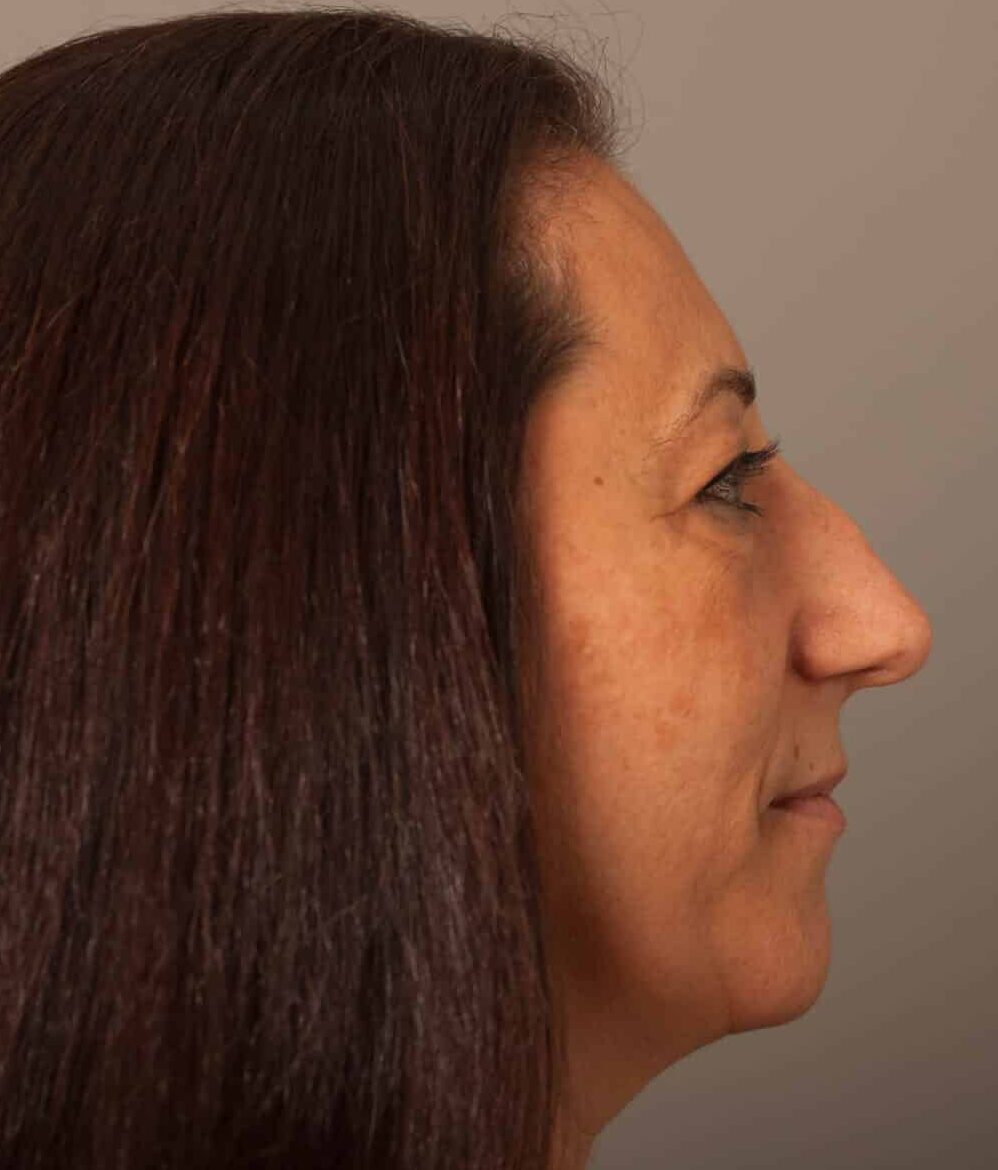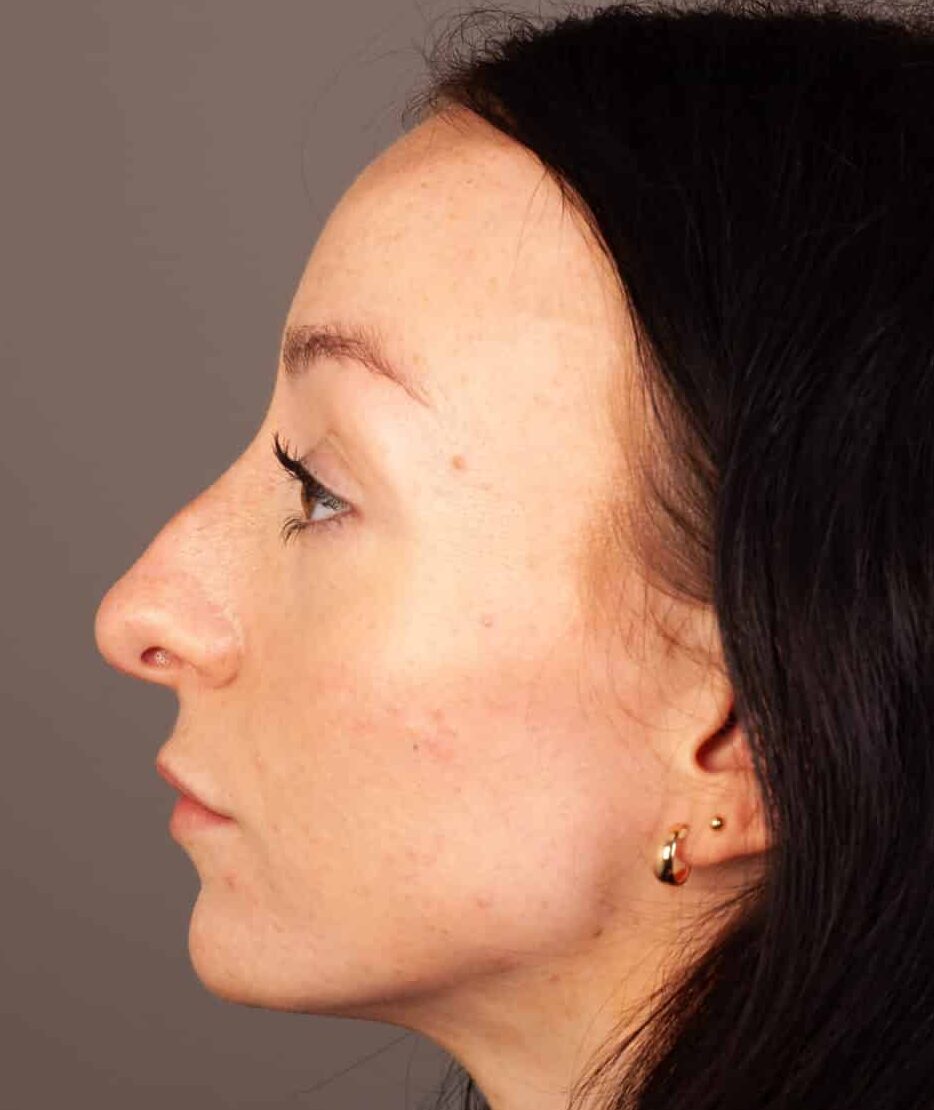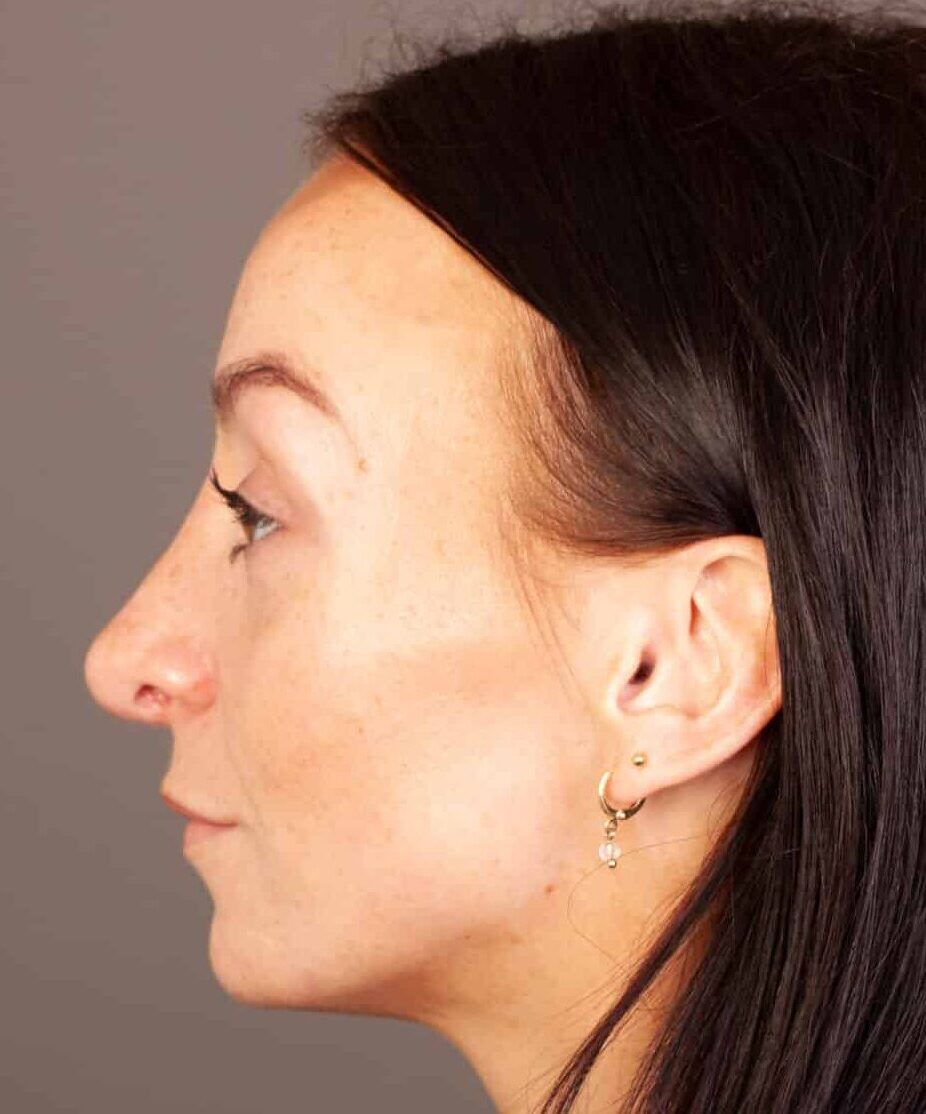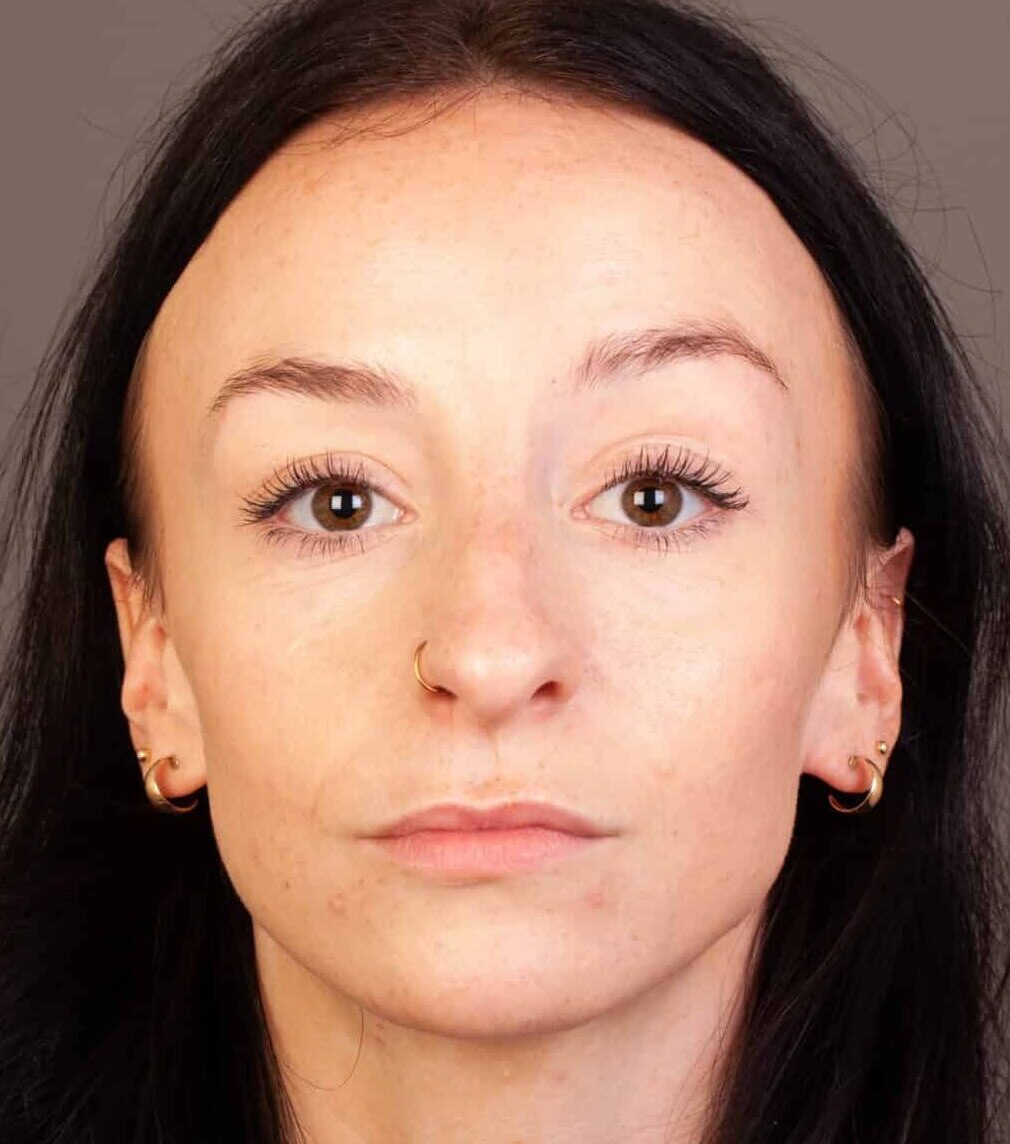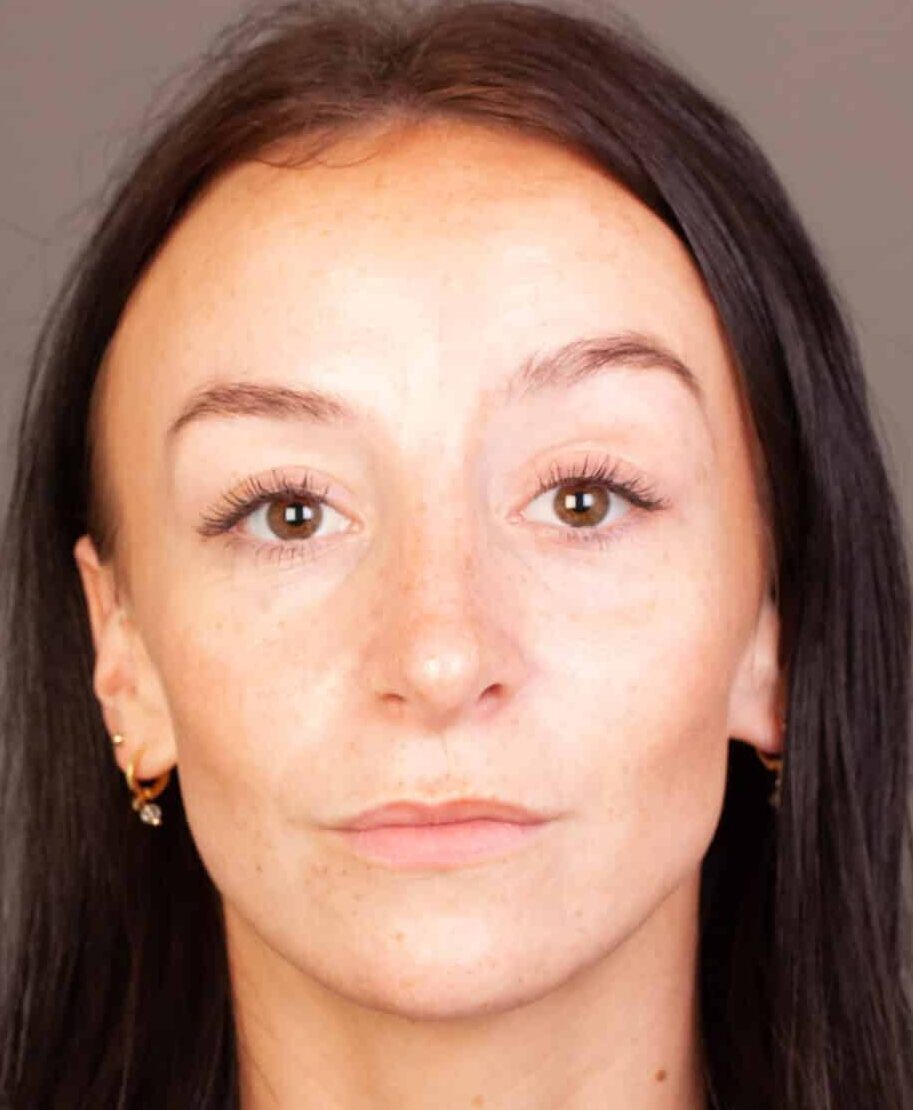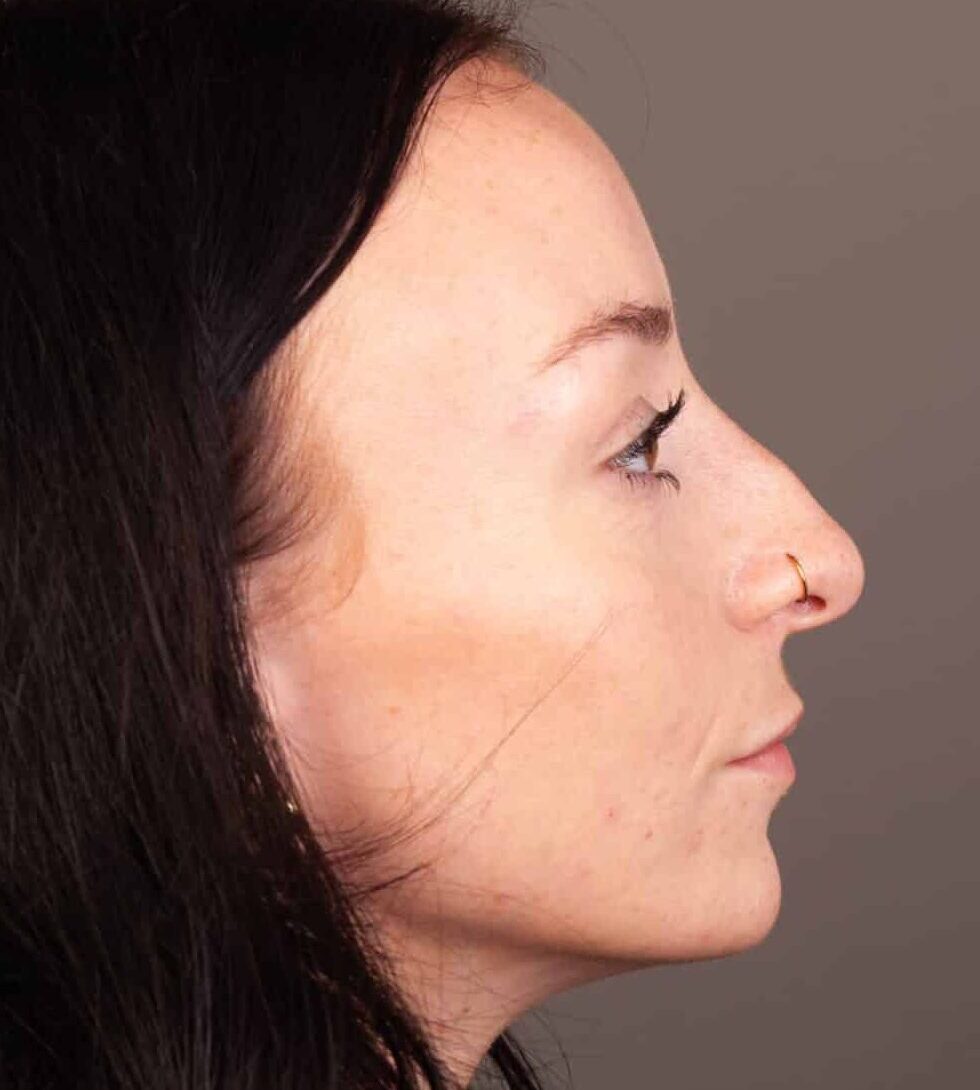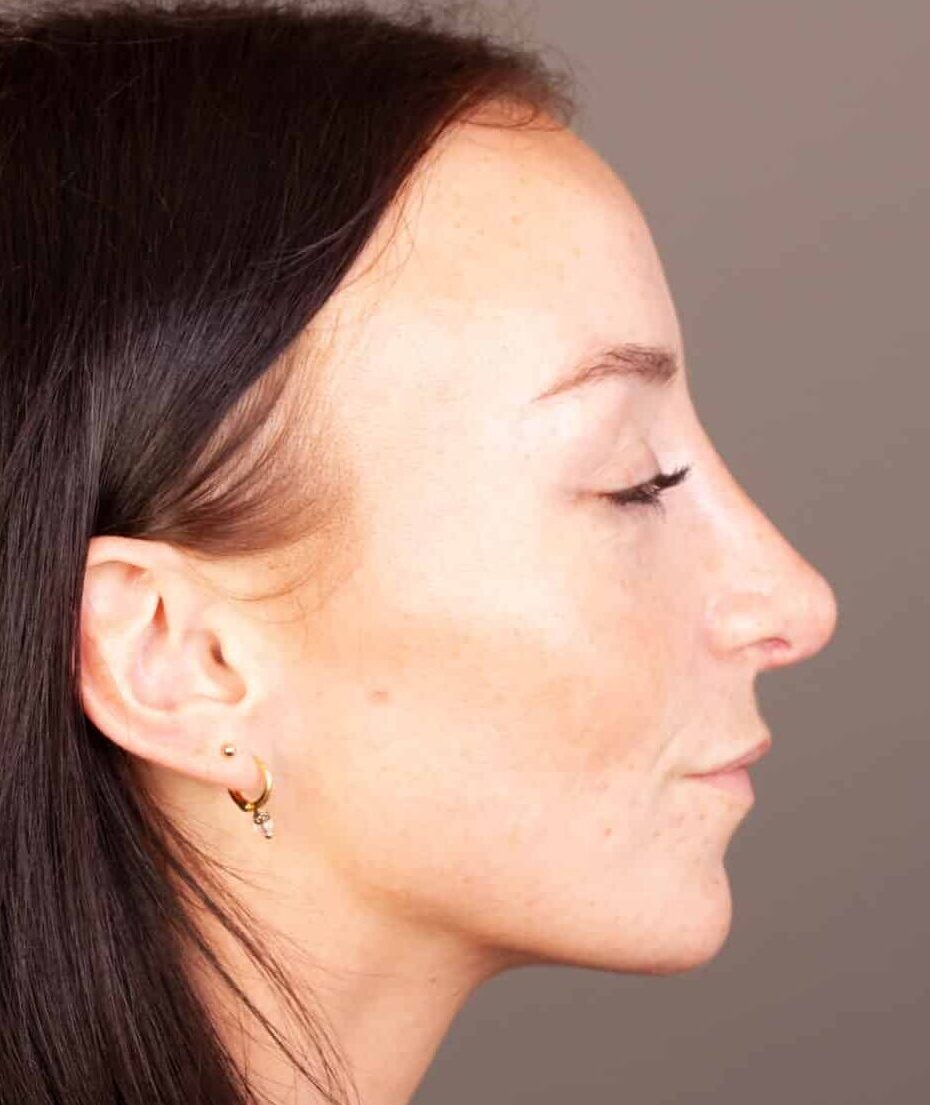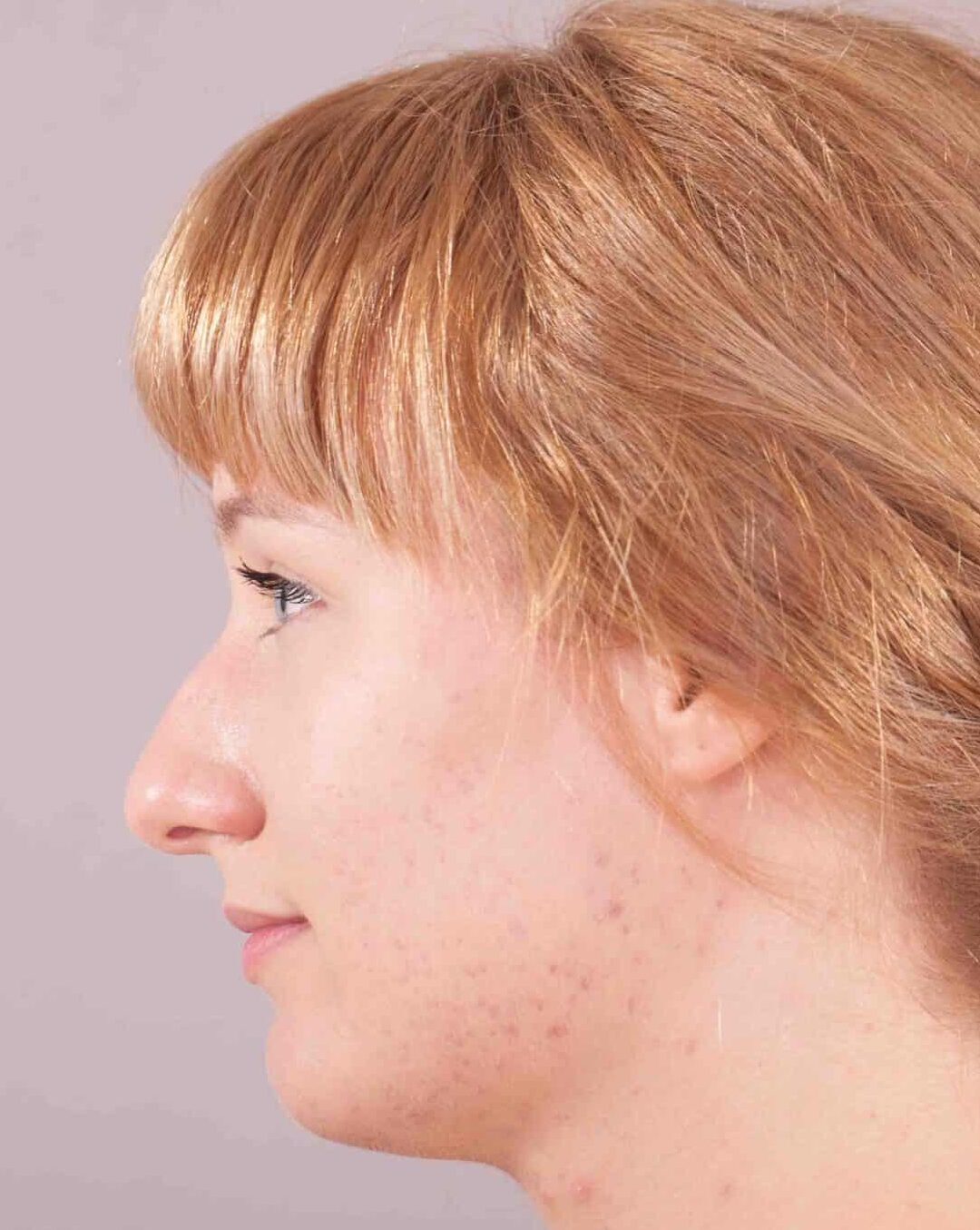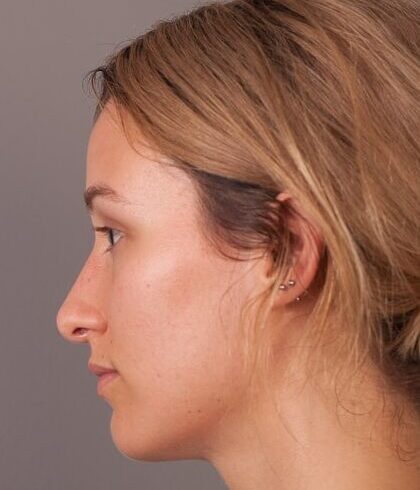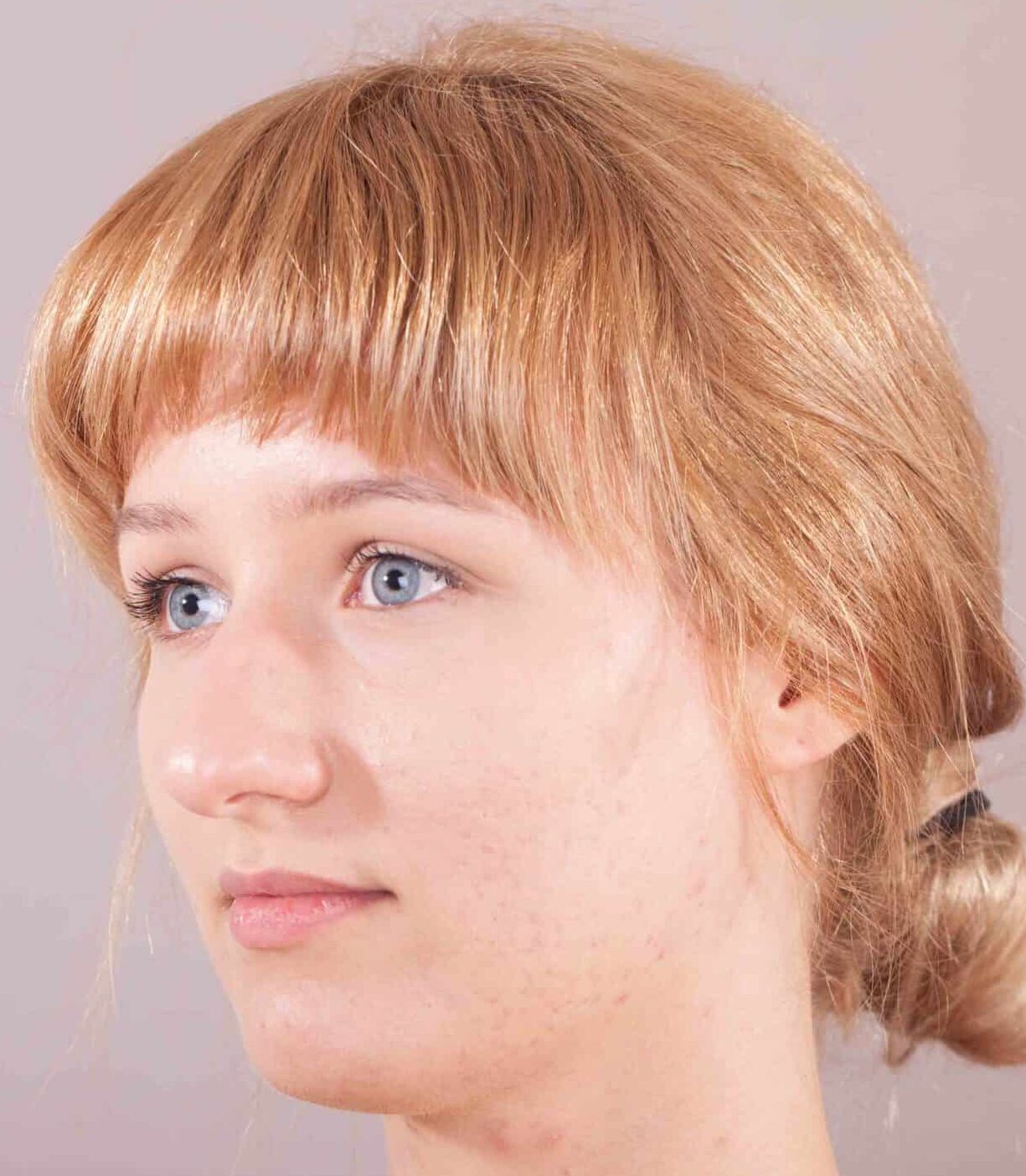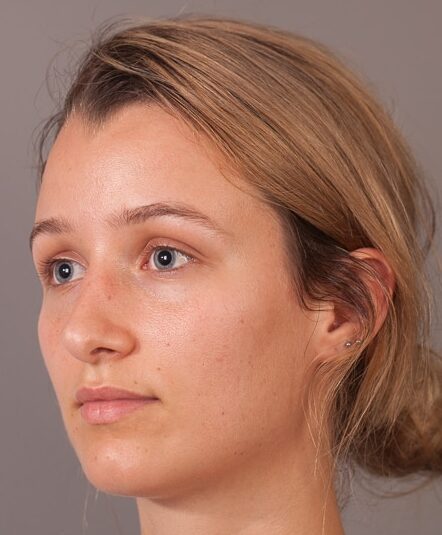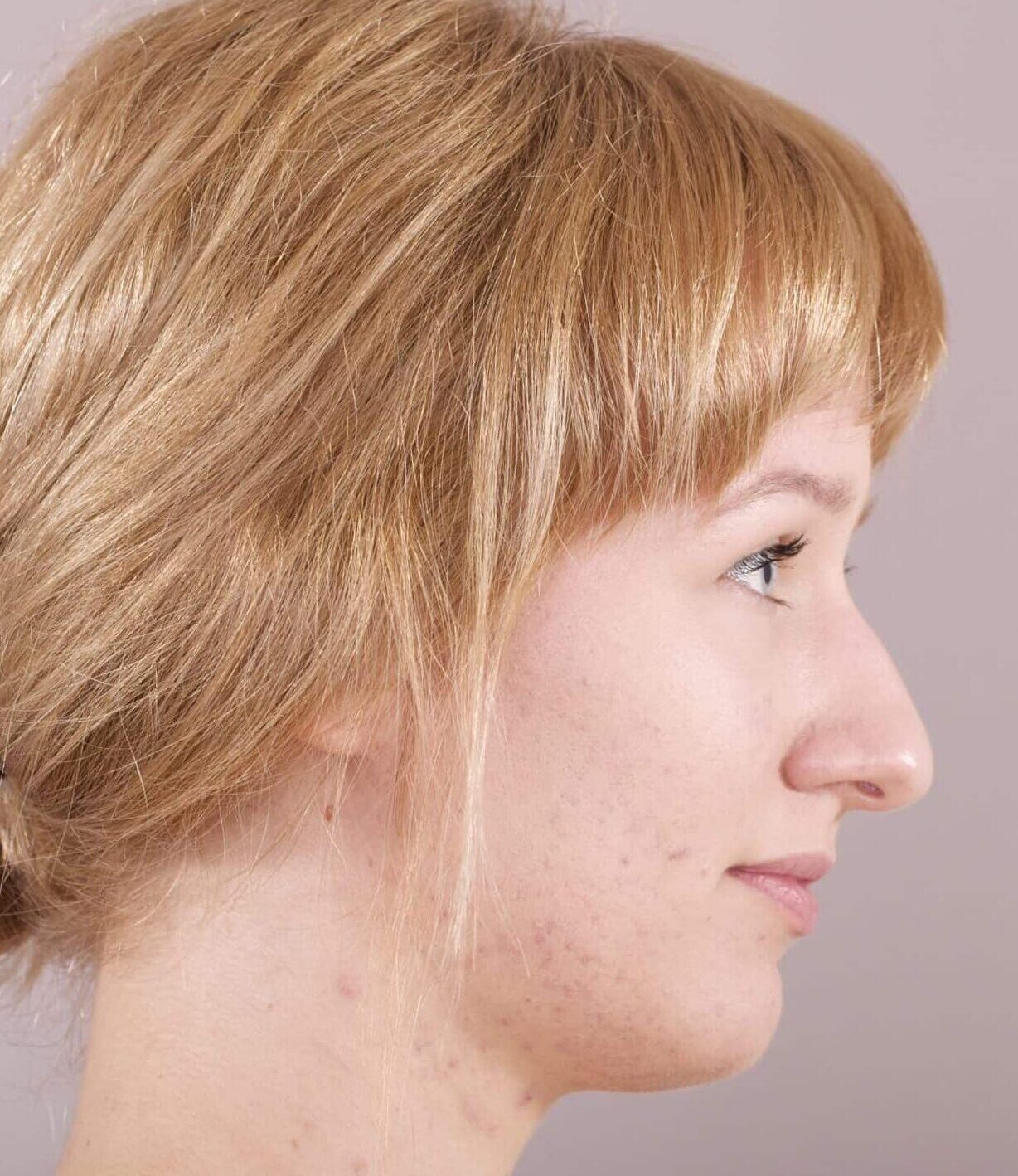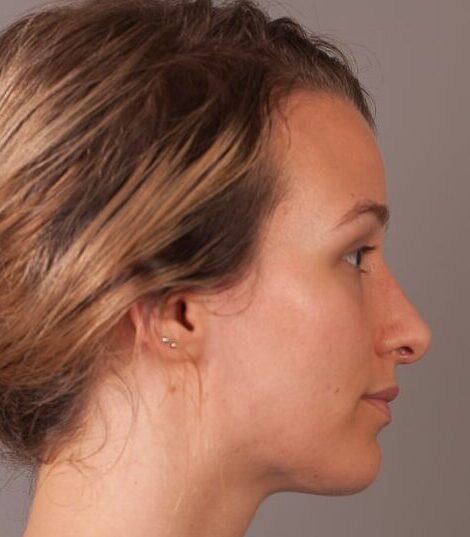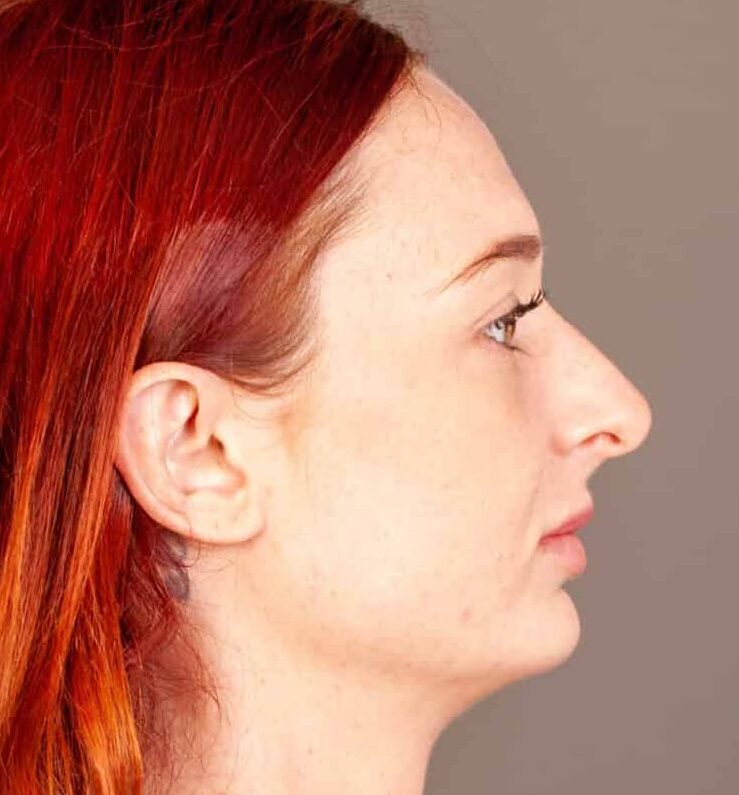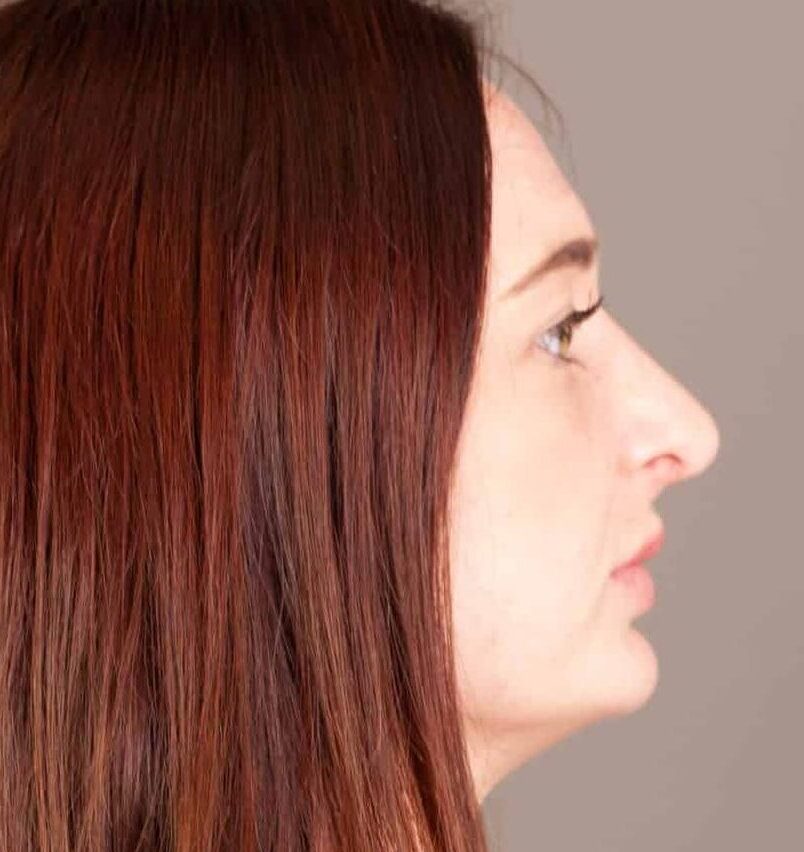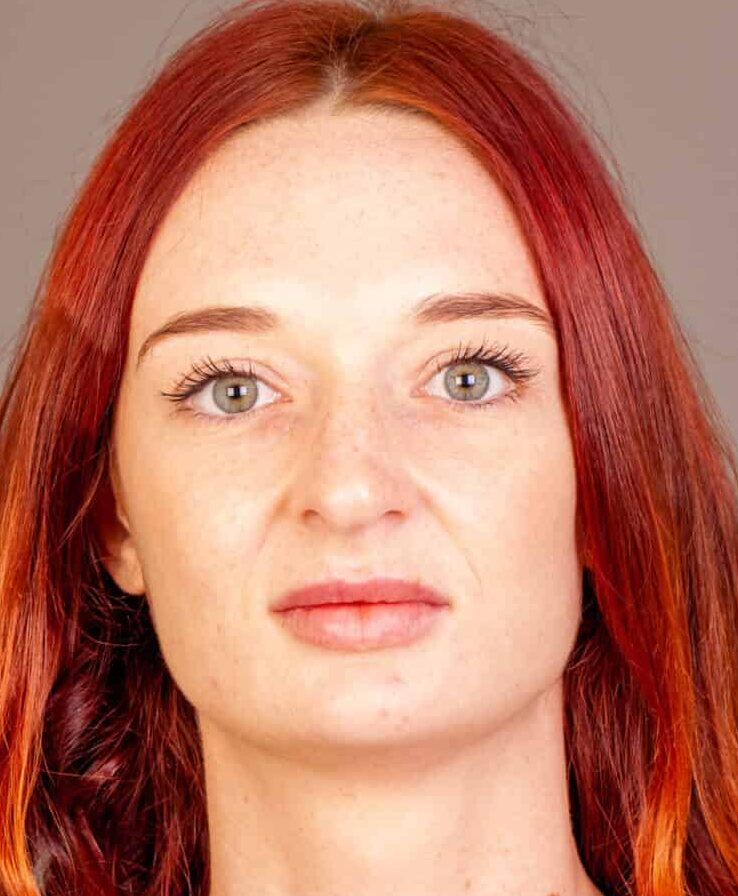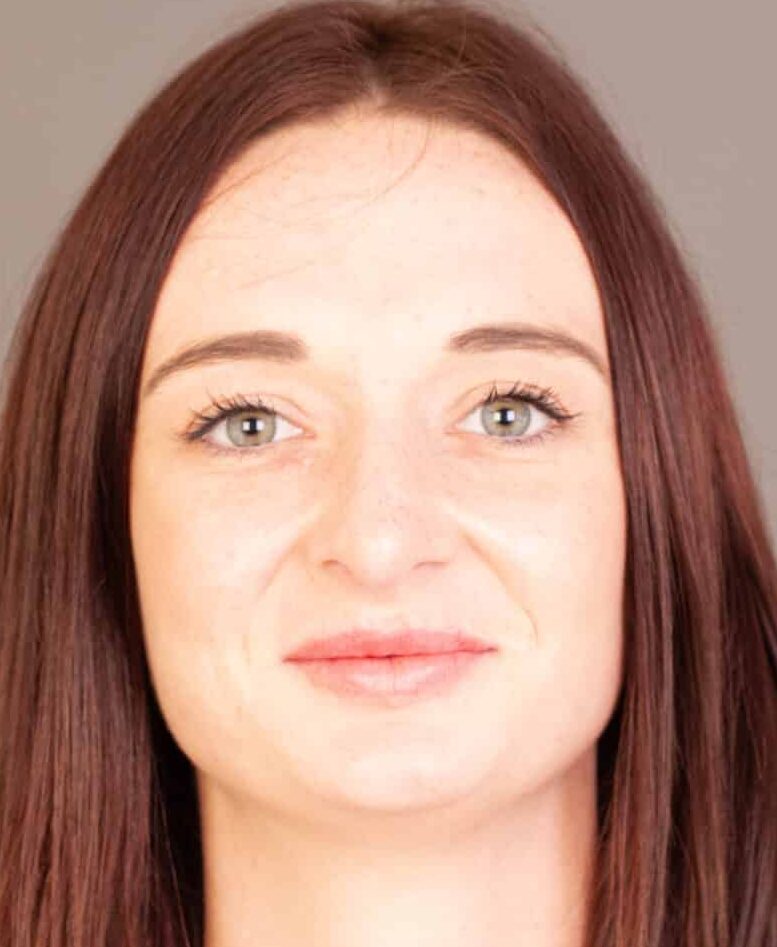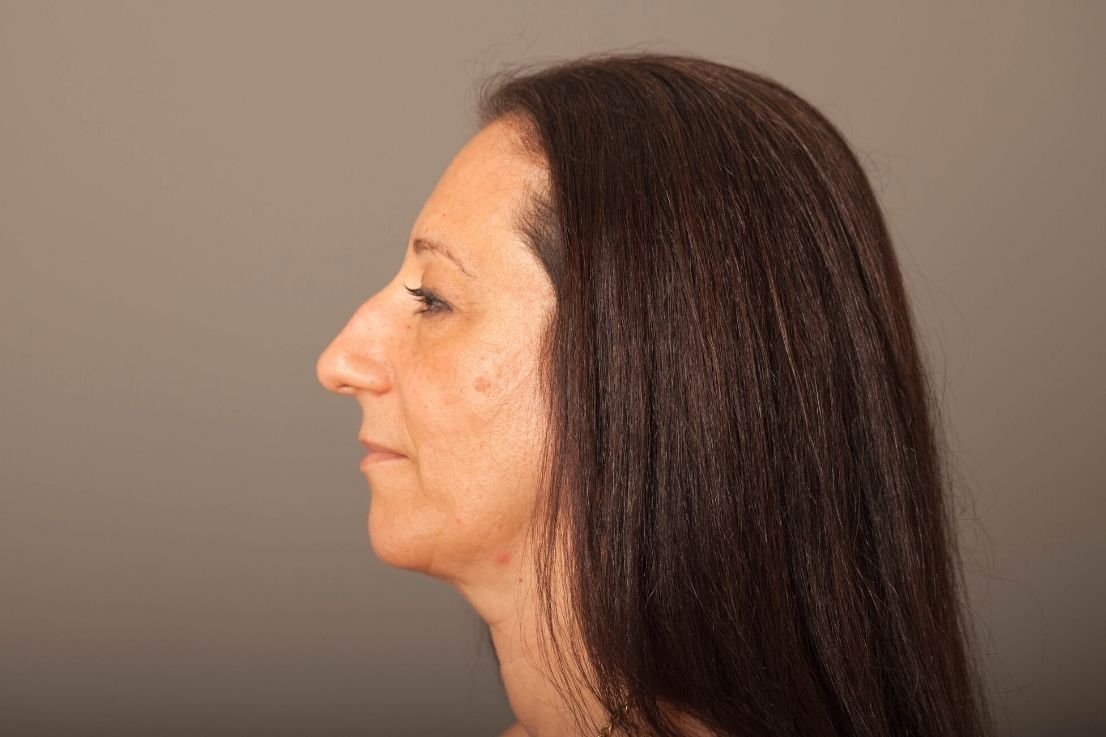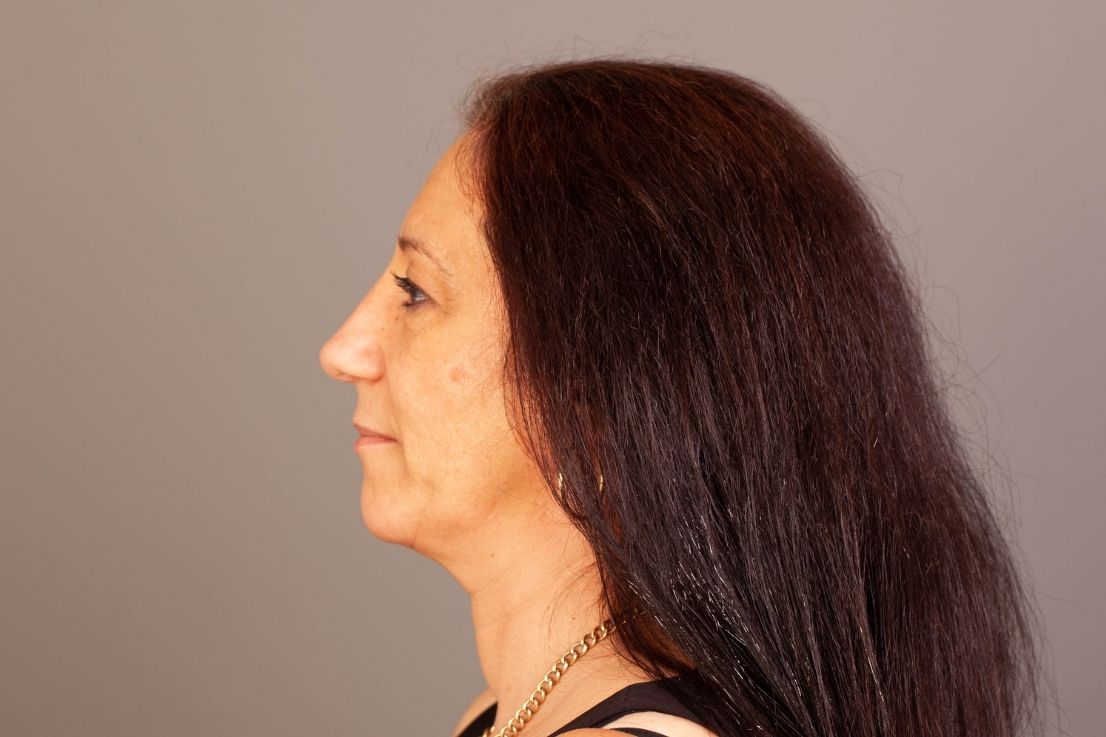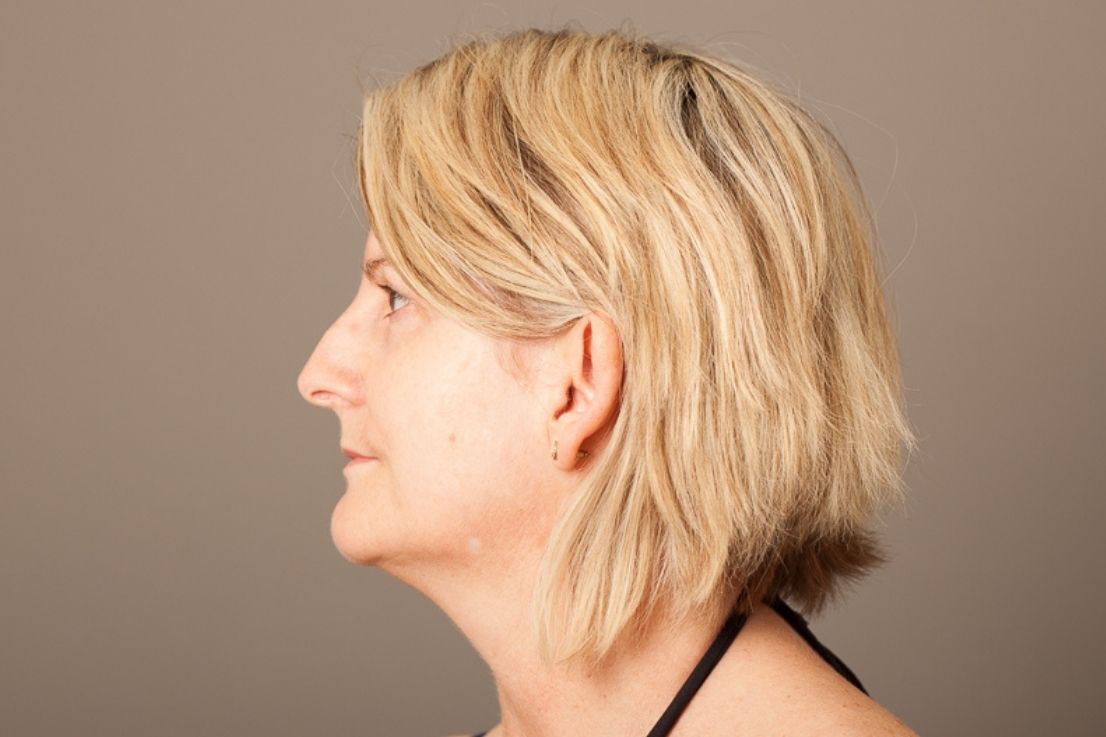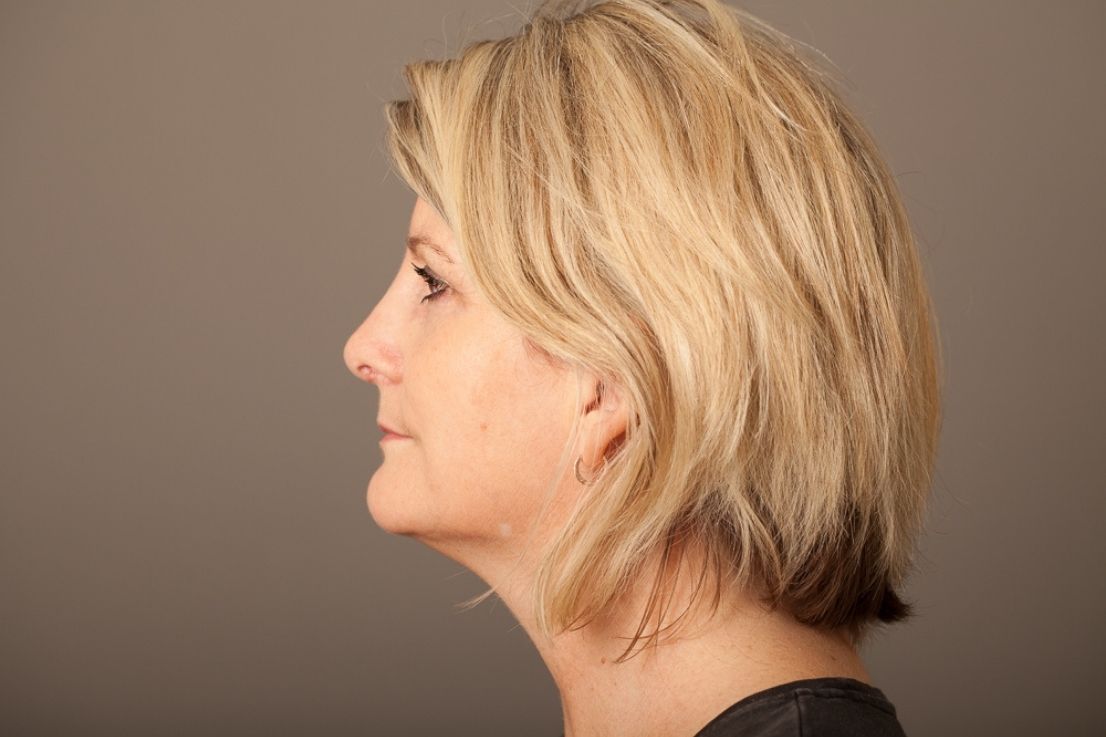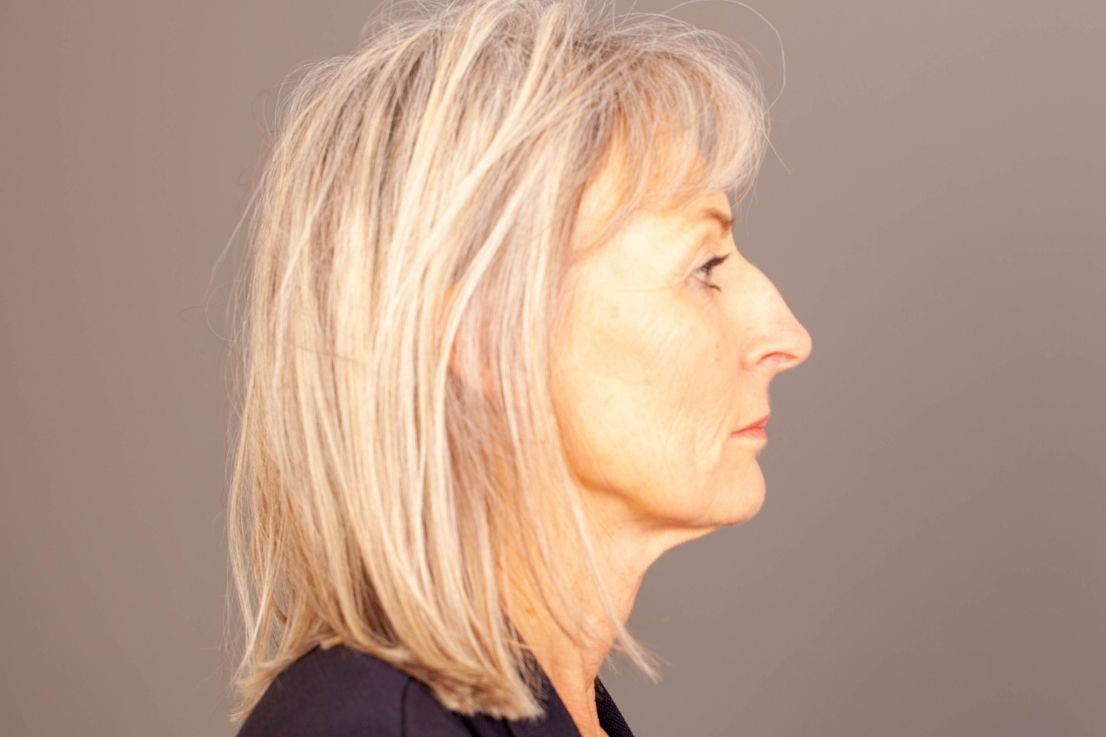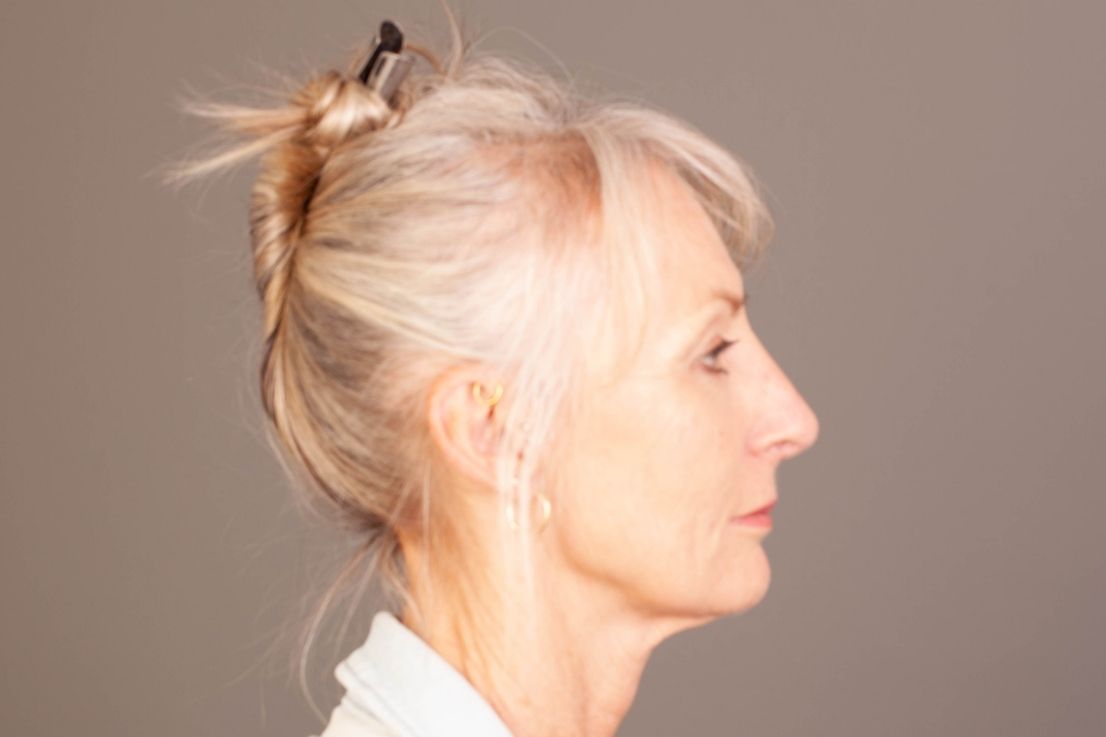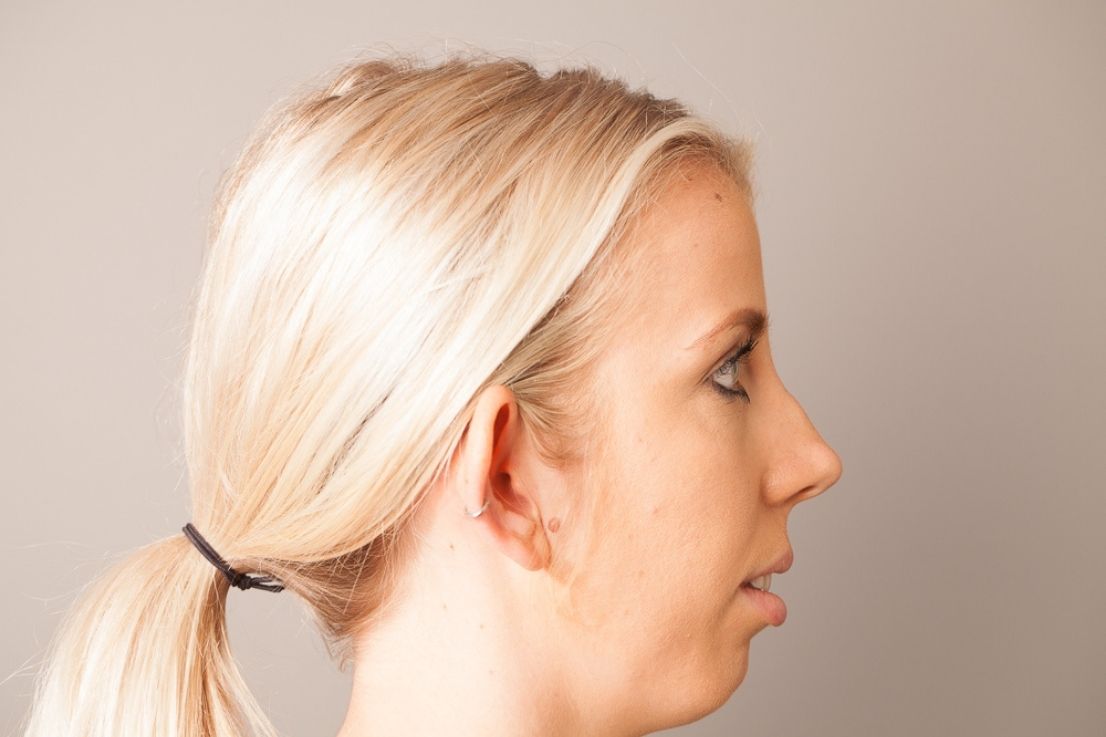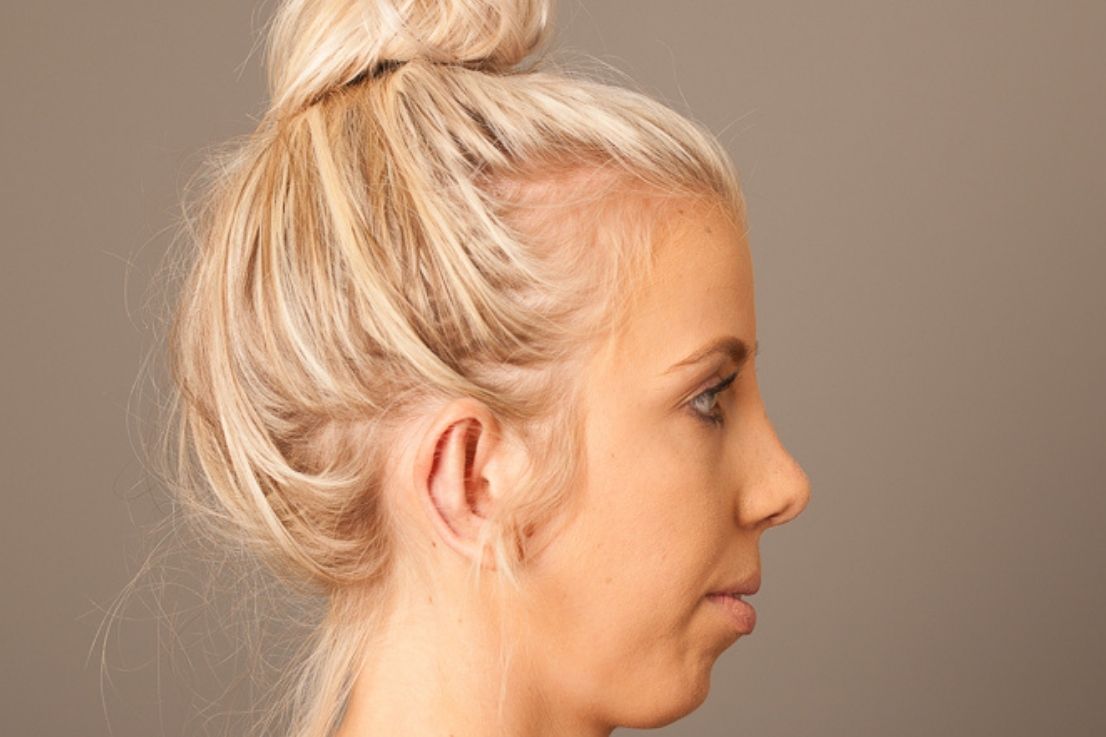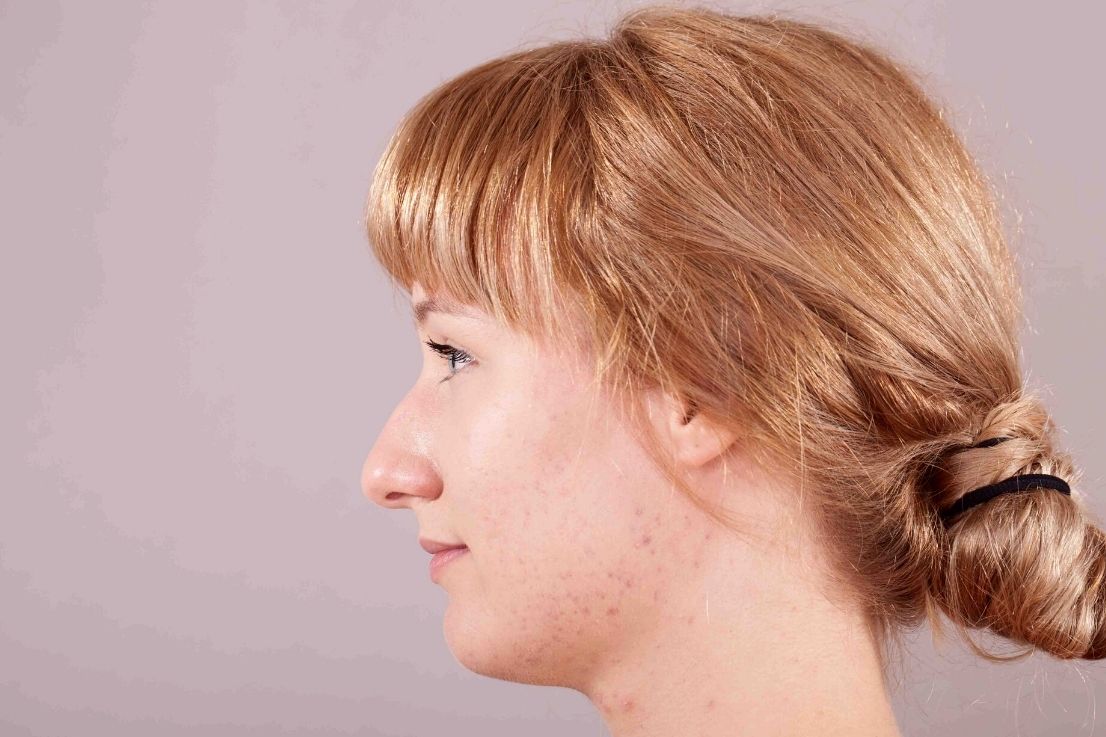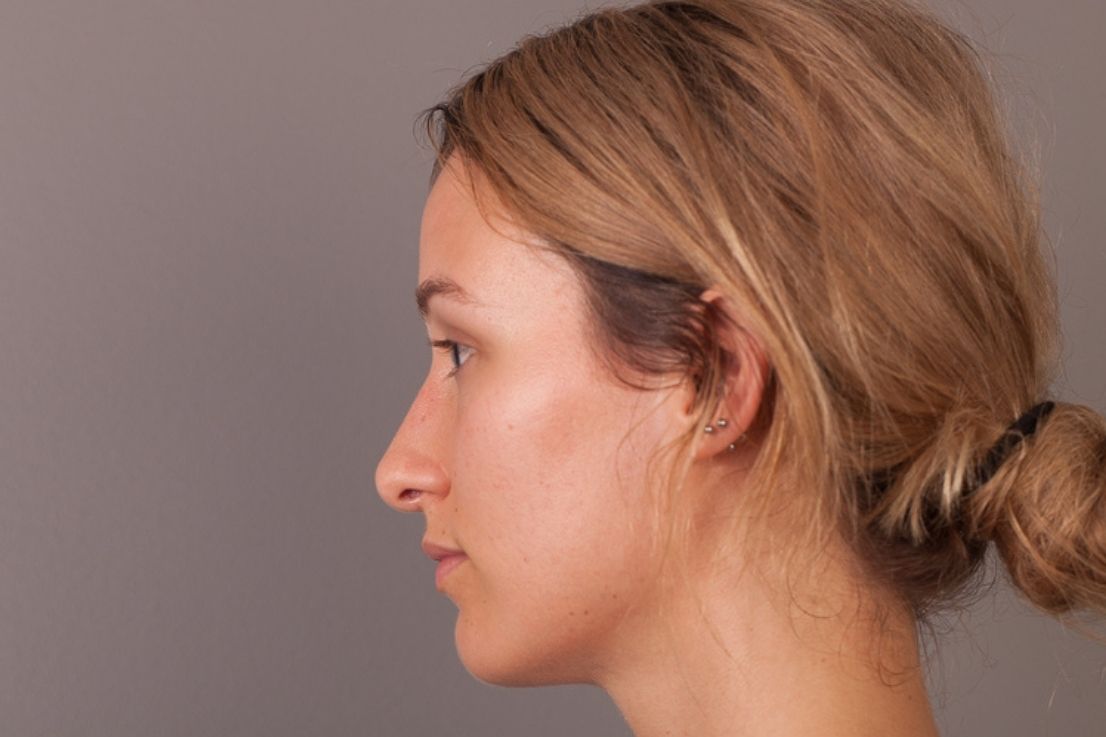Rhinoplasty surgery can shape the outside of the nose or adjust the nose’s internal structure, or both. Some people get nose surgery to correct an underlying structural issue with their nose, while others do it for cosmetic reasons.
Rhinoplasty is an outpatient procedure meaning you can go home the same day. Swelling and bruising are common after surgery and will subside over a few months. Full recovery from nose surgery takes approximately 6 months.
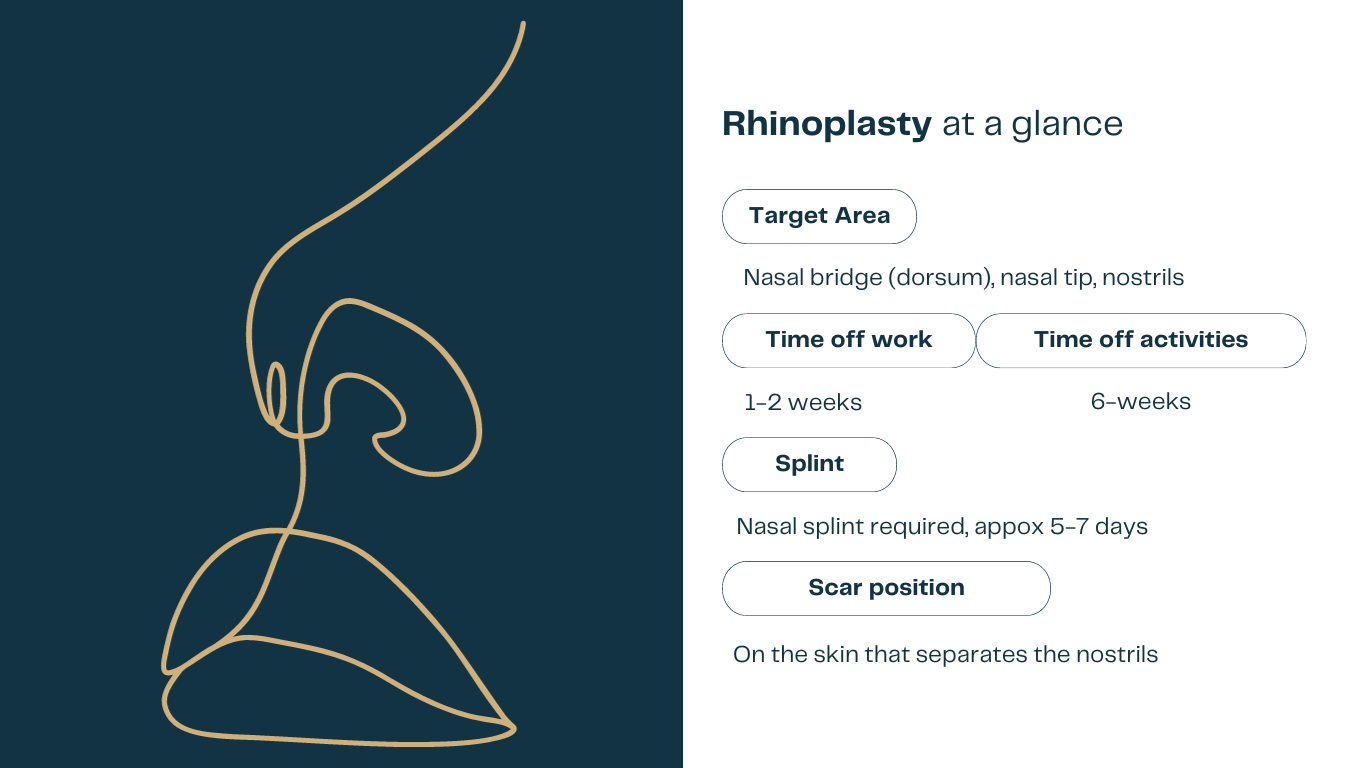
What is Rhinoplasty?
Rhinoplasty is a plastic surgery procedure that changes the appearance of your nose. Rhinoplasty can be done to improve breathing, correct a birth defect, or repair damage caused by an injury.
A nose job procedure can change many parts of the nose. This includes the dorsum (the nasal bridge), the cartilage (the tip and base of the nose) and the skin on top. It can change one, two or all three parts of the nose.
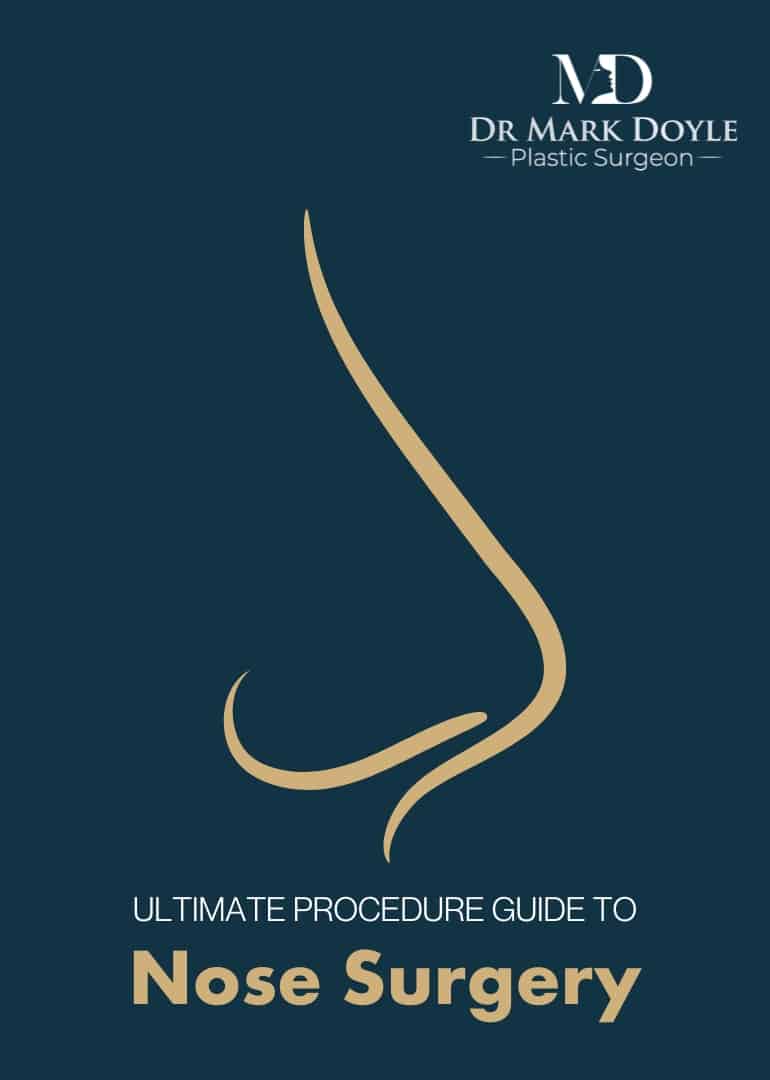
Rhinoplasty
Rhinoplasty Results
Dr Doyle believes that a successful rhinoplasty nose job surgery is one that achieves symmetry correction. As a rhinoplasty specialist, Dr Doyle takes a comprehensive approach to rhinoplasty surgery. He considers all aspects of your nose and face before performing surgery.
Nose sculpting is a complex procedure. There are 25 surgeries within a rhinoplasty. If you’re considering a rhinoplasty nose job procedure, it’s important to choose an experienced and qualified nose surgeon. Dr Mark Doyle is a Gold Coast rhinoplasty surgeon who has helped hundreds of patients acquire their nose surgery goals.
Types of Rhinoplasty
There are many types of rhinoplasty nose jobs due to different types of noses. The reason for undergoing surgery determines the type of procedure you are recommended. The most common types of nose plastic surgery are:
Cosmetic Rhinoplasty
This procedure is to change the shape of the nose. Nose surgery can change the shape and size of your nose. It can change the bridge, the tip, and how your nose looks from the side.
Revision Rhinoplasty
This procedure is a second rhinoplasty and is done to revise a past rhinoplasty result. It is considered corrective nose surgery.
Rhinoplasty Techniques
Within the categories listed above, there are two types of rhinoplasty techniques. These include:
Open Rhinoplasty
In this type of rhinoplasty, Dr Doyle makes an incision across the columella (the strip of skin separating the nostrils). This is preferred as it gives greater access to the cartilage and bone.
Closed Rhinoplasty
In this type of rhinoplasty, all incisions are made inside the nostrils. So, there are no visible scars.
Both types of rhinoplasty have their own advantages. The type of rhinoplasty that is right for you is determined based on your individual surgery goals and recommendations. However, Dr Doyle prefers to use the open rhinoplasty technique where possible. This is because he believes that it gives him greater control to achieve surgery results.
Rhinoplasty Procedure
A rhinoplasty procedure usually takes between one and three hours. It is always performed under general anaesthesia in an accredited hospital.
During surgery, the incision is made and the nose is ‘opened.’ Then, the skin is separated from the cartilage and bone. The surgeon then shapes the bone and cartilage. Finally, the skin is re-draped over the nose and the incisions are closed.
Recovery
During rhinoplasty recovery, you will need to wear a splint on your nose for around one week. This helps to support your nose as it heals. You may also have some bruising and swelling around your eyes. The worst of rhinoplasty swelling stages usually lasts for around 4 weeks. However, it can take up to 12 months for swelling to completely subside.
Right Candidate
The suitable candidate for rhinoplasty is someone who is healthy, a non-smoker and prefers to change the shape of their nose. Common reasons for seeking rhinoplasty include:
- a bulbous nose tip
- a lowered nose
- a bump on the bridge of the nose
- a prominent nose
- a greek nose
- a wide nose
- large nostrils
Furthermore, rhinoplasty is only suitable for those who are in good physical and mental health and do not smoke. The best candidate has realistic expectations of what the procedure can achieve for them.
Rhinoplasty Before and After
This rhinoplasty nose job before and after gallery depicts Dr Doyle’s real patient photos. Looking at nose surgery before and after pictures is a great way to research your procedure. You will be able to determine your surgeon’s skill, scar placement, and results.
*Remember, everyone is different and each individual will have unique and varying results.
Dr Doyle is a rhinoplasty surgeon on the Gold Coast. He also sees rhinoplasty clients from Brisbane, Byron Bay and further Australia, who travel to see him.
Disclaimer: All information on the Dr. Mark Doyle website is general in nature and is not intended to be medical advice, nor does it constitute a doctor-patient relationship. Results can vary significantly and depend on individual patient circumstances. Please be aware that the outcomes shown are specific to those patients and may not necessarily reflect the results others may experience. Individual results can vary due to many factors, including genetics, diet, and exercise. All images on this website, unless specified as real patient images, are graphics used for illustrative purposes only. Surgery risks and complications will be covered in detail during a consultation with your surgeon. Book a consult for details regarding your cosmetic surgery procedure.
Rhinoplasty Gallery by Specialist Plastic Surgeon Dr Doyle
Rhinoplasty Gallery by Specialist Plastic Surgeon Dr Doyle
Rhinoplasty Gallery by Specialist Plastic Surgeon Dr Doyle
Rhinoplasty Gallery by Specialist Plastic Surgeon Dr Doyle
Rhinoplasty Gallery by Specialist Plastic Surgeon Dr Doyle
Rhinoplasty Gallery by Specialist Plastic Surgeon Dr Doyle
See all rhinoplasty before and after photos here.
FAQs
While rhinoplasty is the same for both genders, different genders generally prefer different outcomes. Many women prefer a curved dorsum for a more rounded nose or button nose. While men prefer to have a straighter nose, both on the dorsum and across the base of the nose.
A ‘button nose’ is one that has a small, upturned tip. This look can be achieved with rhinoplasty surgery by reducing the size of the nostrils and reducing the bridge and the shape of the tip of the nose.
There is no such thing as a perfect nose. Depending on your anatomy, noses come in all shapes and sizes. For this reason, there is no ‘best’ rhinoplasty result.
Revision rhinoplasty is a secondary rhinoplasty nose job. This may be necessary if you are dissatisfied with the results of your primary rhinoplasty surgery. It can also performed after injury or if your nose has changed over time.
Rhinoplasty scarring is usually quite minimal. Scars are usually placed on the columella, the strip of skin that separates the nostrils. As it is underneath the nose, it can be difficult to notice.
The total recovery period required for rhinoplasty surgery is 6-8 weeks. After this time you should be able to return to all daily activities.
Rhinoplasty results are generally considered permanent and last into the future.
As with any surgery, rhinoplasty carries certain risks and complications. These include infection, bleeding, reactions to anaesthesia and rhinoplasty scars. Further risks will be explained to you in detail during your consultation.
Rhinoplasty is generally not considered a painful procedure. You will have a general anaesthetic for the surgery and will not feel any pain during the surgery itself. You may experience some discomfort and pain afterwards, but this can be controlled with pain relief medication.
Next Steps
If you are considering rhinoplasty surgery, the first step is to book a consultation with Dr Doyle. He will assess your suitability for surgery and answer any questions you may have.
To book a consultation, please call us on 07 5598 0988 or fill out our online enquiry form.
About Dr Mark Doyle FRACS (Plast) – Specialist Plastic Surgeon
Dr Mark Doyle is a Specialist Plastic Surgeon with over thirty years of experience. He specialises in face lift surgery in Gold Coast and Brisbane, and also offers a range of body and breast procedures.
Dr Doyle is a fully qualified Doctor and surgeon. He has completed all required training to be a Specialist Plastic Surgeon and is driven by an committed to providing excellent standards of care.
NEXT STEPS
Do Your Research
- Read the Website and Blogs relevant to your procedure
- Read our Frequently Asked Questions
- Learn about the Risks and Complications of Surgery
- Download our Plastic Surgery Guides
- Browse Dr Doyle’s YouTube Channel
What to Bring to Your Plastic Surgeon Consultation
- Bring a friend or relative for support and discussion regarding your choices
- Take notes and read all provided information thoroughly
- Read about what to expect in your Initial Surgery Consultation
Book Your Plastic Surgery Consultation
- Get a Referral from your GP or specialist – this is required to book a consultation with Dr. Doyle.
- Email us or call on 07 5598 0988 to arrange your consultation appointment.
- Pay your $300 Consultation Fee in advance to secure your consultation.
Please contact us to arrange to book a consultation with our Specialist Plastic Surgeon or to speak with our Patient Care Advisor.
Send an enquiry form today or phone 07 5598 0988 during Clinic Hours.
–
*DISCLAIMER: All information on Dr Mark Doyle website is general and is not intended to be medical advice nor does it constitute a doctor-patient relationship. Results can vary significantly and depend on individual patient circumstances. All images on this website, unless specified as real patient images, are stock images used for illustrative purposes only. Surgery risks and complications will be covered in detail during a consultation with your surgeon. Book a consult for details regarding your cosmetic surgery procedure.
Dr. Mark Doyle AHPRA Registration: Dr Mark Doyle MED0001375519 Specialist Plastic Surgery – MBBS FRACS FRCS
